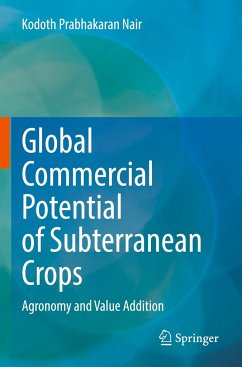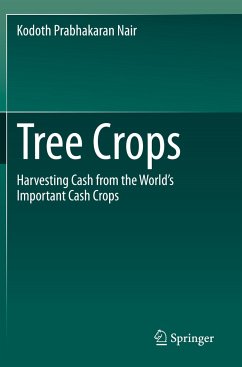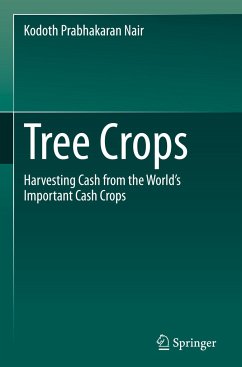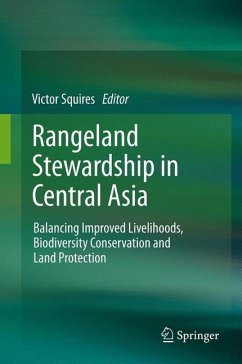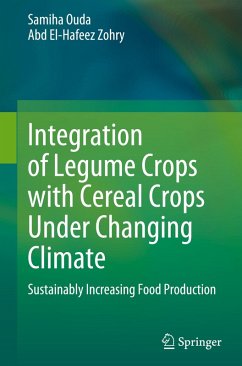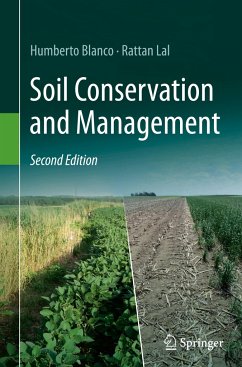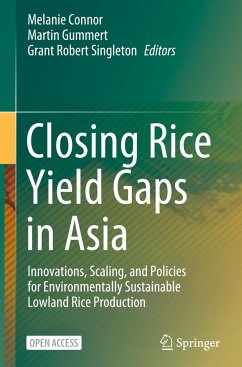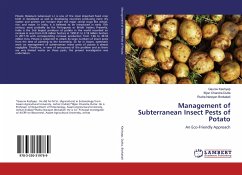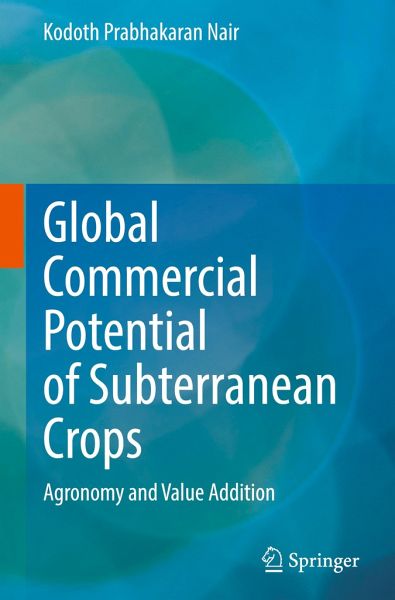
Global Commercial Potential of Subterranean Crops
Agronomy and Value Addition
Versandkostenfrei!
Versandfertig in 6-10 Tagen
160,49 €
inkl. MwSt.
Weitere Ausgaben:

PAYBACK Punkte
0 °P sammeln!
Tropical root and tuber crops form an important group of food crops for millions of people (about one-fifth of the world population), especially those living in the tropical and sub-tropical zones. Tuber crops are the third important food crops after cereals and grain legumes. The carbohydrates synthesized in the leaves and stored in the form of starch in the underground roots and tubers, which are not only for food, but also a raw material for several industries. Among the many tuber crops available, only a few have been domesticated and widely cultivated for edible and industrial purposes. T...
Tropical root and tuber crops form an important group of food crops for millions of people (about one-fifth of the world population), especially those living in the tropical and sub-tropical zones. Tuber crops are the third important food crops after cereals and grain legumes. The carbohydrates synthesized in the leaves and stored in the form of starch in the underground roots and tubers, which are not only for food, but also a raw material for several industries. Among the many tuber crops available, only a few have been domesticated and widely cultivated for edible and industrial purposes. This book addresses the principal issues connected with selected tuber and root crops, their origin, global distribution, cultivation details, and their global commercial potential, vis-à-vis the end products made out of them (value addition). Among the crops, sweet potato, cassava, yams, colocasia, west Indian arrowroot, asparagus, safed musli, Indian Bread root and gloria superba will be discussed.
From various projections, it is evident that by the year 2050 the world population will face a serious food shortage, if current trends in cereals consumption is taken intoaccount. That is why root and tuber crops assume great importance. Contrary to the high-fertility soils, which are a requirement for principal cereals like rice and wheat, root and tuber crops can grow quite well in poor soils, under varying climatic conditions.
From various projections, it is evident that by the year 2050 the world population will face a serious food shortage, if current trends in cereals consumption is taken intoaccount. That is why root and tuber crops assume great importance. Contrary to the high-fertility soils, which are a requirement for principal cereals like rice and wheat, root and tuber crops can grow quite well in poor soils, under varying climatic conditions.



